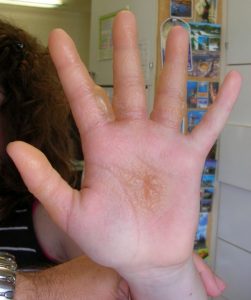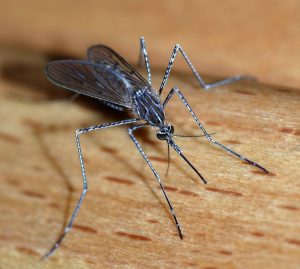
As the outdoor season approaches, there are some pesky insects and plants out there that can really irritate and cause problems for your skin.
Here are some helpful recommendations released by the American Academy of Dermatology in March 2017 to help protect your sensitive skin against these plants and insects.
Take Precautions and Preventive Measures

The first step is simply take precautions and identify what kind of plants and insects can cause adverse reactions to you skin. For example, you can list what caused irritations for your skin from past exposure. Once you know what these pesky plants and insects are, try to avoid exposure to them.
To prevent rashes from poison ivy and poison oak, you can use the “leaves of three” rule and avoid plants with three leaves.
When going hiking, running or working outside, try to wear preventive clothing and apply a barrier cream to the skin.
If you do get skin rashes from exposure to poison ivy, oak or sumac, rinse off the affected areas on your skin as soon as possible.
Beware of Phytophotodermatitis

Phytophotodermatitis is a condition where a rash develops on your skin followed by hyperpigmentation. It cab be caused by ultraviolet exposure after contact with certain plants.
You can also get it just by sitting out in the sun while drinking or eating foods containing citrus fruits like lemons and limes. To avoid this condition, rinse your skin off again and reapply sunscreen after drinking citrus while outside the sun.
Rash-Inducing Plants Inside Your Home
You don’t even need to be outside to be exposed to rashing-inducing plants. Some flowers and bulbs — including chrysanthemums, Peruvian lilies, and tulip and daffodil bulbs — contain chemicals that can irritate the skin or result in an allergic reaction.
Also, spicy foods, like chili peppers and horseradish, can contain plants that can cause skin irritation.
Beware of these plants and notice if you develop skin rashes after being exposed to these plants.
Beware Sharp Thorns
Plants with thorns like cacti and thistles can injure your skin and cause skin problems. In addition, plants with small nettles or hairs can cause hives by releasing irritating chemicals into the skin.
If you are around these plants or need to handle them, use protective clothing like gloves.
Bites and Stings From Common Insects

If these pesky plants are not enough, common insects that bite and sting can also cause skin irritations.
You can prevent these bites and sting by wearing protective clothing like pants and long sleeves. You can also spray your clothes and camping gear with the insect repellant and insecticide permethrin.
Try staying indoors at dawn and dusk, when insects are most likely to bite. Also, use insect repellants that contain DEET, picaridin or oil of lemon eucalyptus.
If an insect lands on your skin, flick it away instead of smashing it on your sking. If you smash it on your skin, the insect might bite you, resulting in skin irritation or injury.
Health Problems From Insect Bites
Most insect bites don’t cause health problems, but most can be quite itchy. Try treating the itchiness with over-the-counter or prescription antihistamines and topical steroids.
Mosquitos and ticks do pose health risks, as they may transmit more serious conditions, such as Lyme disease and West Nile virus, respectively.
You should seek medical attention if you experience symptoms like a persistent rash, fever or body aches after being bitten.
Doing outside activities can be fun and good for fitness. These pesky plants and insects don’t have to ruin your time outdoors. Take the necessary precautions and preventive measures, you’ll have a great time outdoors.
Resources:


